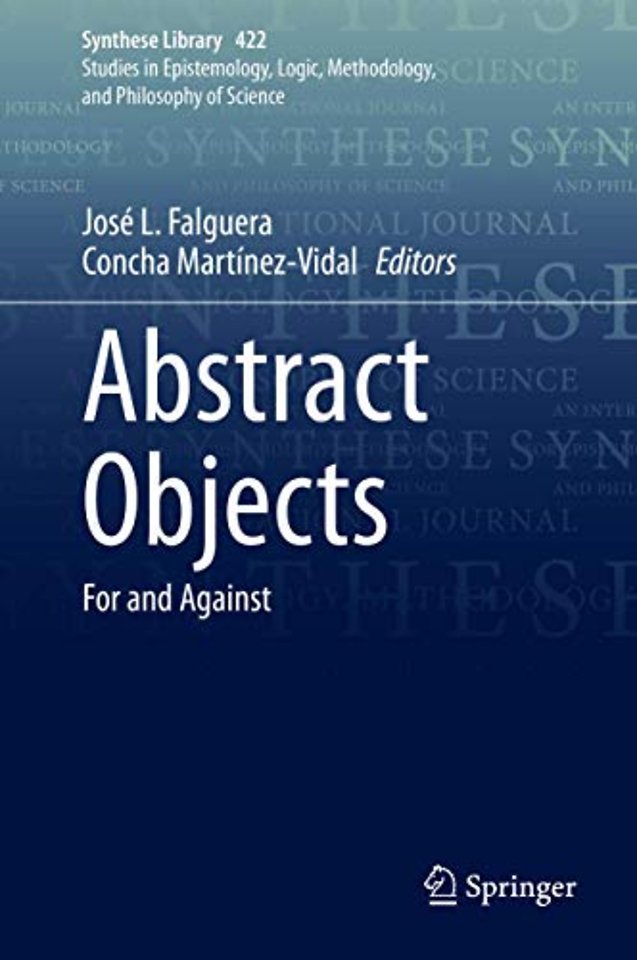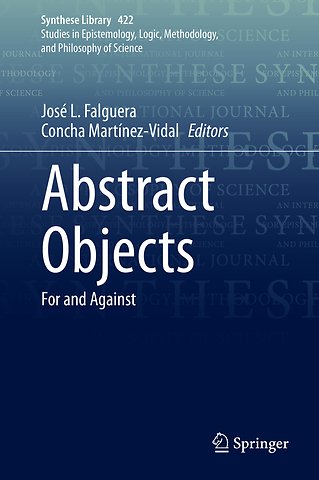<div><div>Preface</div><div>José L. Falguera and Concha Martinez-Vidal</div><div><br></div><div>1. Introduction: Recent disputes on the existence on abstract objects: an overview</div><div>Matteo Plebani</div><div> </div><div>Part I. Enhanced Indispensability and Type Theories</div>2. Purely Physical Explananda: Bistability in Perception</div><div>Sam Baron</div><div><br></div><div>3. Description, Explanation and Ontological Commitment</div><div>Concha Martinez-Vidal and Navia Rivas-de-Castro</div><div><br></div><div>4. Typed Object Theory</div><div>Edward Zalta</div><div> </div><div>Part II. Fictionalism or Realism in Philosophy of Mathematics</div><div>5. Contingent Abstract Objects</div><div>Otávio Bueno</div><div><br></div><div>6. Is There a Fact of the Matter about the Existence of Abstract Objects?</div><div>Mary Leng</div><div> </div><div>Part III. Fictionalism or Realism in Philosophy of Empirical Sciences</div><div>7. An ensemble-plus-standing-for account of scientific representation: no need for (unnecessary) abstract objects</div><div>José A. Diez</div><div><br></div><div>8. The Nature of Scientific Models: Abstract Artifacts that Determine Fictional Systems</div>Xavier de Donato-Rodriguez and José L. Falguera<div><br></div><div>9. The Scope and Power of Abstraction in Science</div><div>Stathis Psillos</div><div><br></div><div>10. Models and Denotation</div><div>Fiora Salis, Roman Frigg, and James Nguyen</div><div> </div><div>Part IV. Fictionalism or Realism in Philosophy of Language</div><div>11. Fictional Co-identification: The Explanatory Lightweight of Realism</div><div>Manuel Garcia-Carpintero</div><div><br></div><div>12. What is the difference between Hamlet and me? Fiction, metaphysics and the nature of our moral thinking</div><div>Sofía Miguens</div><br><div>13. Abstract Objects and the Core-Periphery Distinction in the Ontological and Conceptual Domain of Natural Language</div><div>Friederike Moltmann</div><div><br></div><div>14. How to Vindicate (Fictional) Creationism</div><div>Alberto Voltolini</div><div> </div>Part V. Fictionalism or Realism in Moral Philosophy and Philosophy of Arts<div>15. Moral Folkism and the Deflation of (Lots of) Normative and Metaethics</div><div>Mark Balaguer</div><div><br></div><div>16. Methodology in the ontology of artworks: exploring hermeneutic fictionalism</div><div>Elisa Caldarolo</div><div><br></div><div>17. A Realist-Friendly Argument for Moral Fictionalism: Perhaps You’d Better Not Believe It</div><div>Christopher Jay</div>

